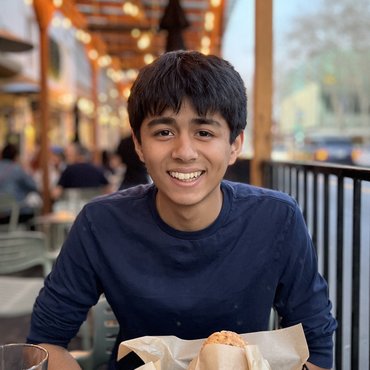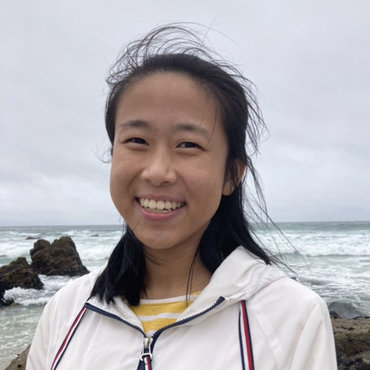
Alan Arroyo-Chavez, '19
Queer Migrant Experiences: Exploring Self and an International Community

The warm summer air kissed my face as I sat on a tree-shaded hill watching the sun set between la Catedral de la Almudena and el Palacio Real. Who would have thought that a boy from Tracy, California would end up basking in the orange madrileño sun?
Then again, this was my second time in the city. When I first came to Madrid, Spain in 2017 through the Bing Overseas Studies Program, the city charmed me with its architecture, liveliness, and people. I didn't think I would return, but then I was offered the Halper International Summer Fellowship to work with Kifkif, a nonprofit organization whose mission is to provide aid to queer immigrants in Madrid. People who seek help from Kifkif come from Europe, Latin America, and Northern Africa; they speak English, Spanish, French, Italian, Romani, and Arabic.
Immediately, I was put to work transcribing interviews that my supervisor, Florencia Rivaud, had conducted to shed light on queer immigrants' experiences coming to Spain. In these interviews, I heard about queer people being extorted because of their identities and Latinx trans women being ostracized. I was shocked by the hardships that the people interviewed went through. However, these same people made a home for themselves in a new country, came to terms with their identities, and maintained positive attitudes. Many of these immigrants and their children return to work for Kifkif to help others settle in Madrid.
Listening to their stories forced me to break through the veil of comfort that living in the United States created. As a queer Mexican man, I see the community of queer refugees in Madrid as part of my own broader Latinx and queer community. However, we differ in a key way. In the United States, despite its own shortcomings, I can be open with my friends and my loved ones, and this safety is a privilege that I took for granted.
Laws and cultures around LGBT issues in places like Spain shift over time. Spain decriminalized homosexuality in 1979 soon after the fall of the Franco regime, legalized same-sex marriage in 2005, and instituted penalties for discrimination based on sexual orientation. (In comparison, there are still jurisdictions in the United States that protect an employer's right to dismiss an employee based on sexual orientation). Because Spain has risen as one of the countries most accepting of LGBT people, Latin Americans immigrate to Spain. This migration is complicated and ironic given that these immigrants seek refuge from violent dynamics that Spain established in the first place.
I think a lot about how after 1492 Spain imposed Catholicism in Latin America, establishing rigid gender roles and solidifying hetero-patriarchal dynamics among indigenous peoples and their mixed descendants. Those dynamics continue to affect my community, including myself.
Though it continues to be difficult to unpack the relationship that my Latinx communities will always have with Spain, this Cardinal Quarter experience has been a gateway to learning more about the human rights issues that queer people face internationally. I hope to continue learning about the experiences of queer immigrants from countries outside the United States so that I can better connect with communities I consider my own.


